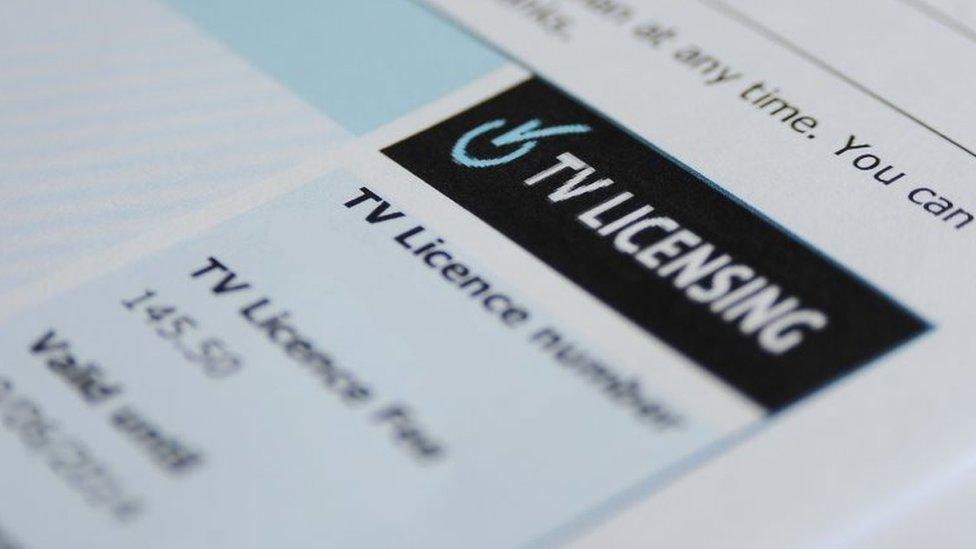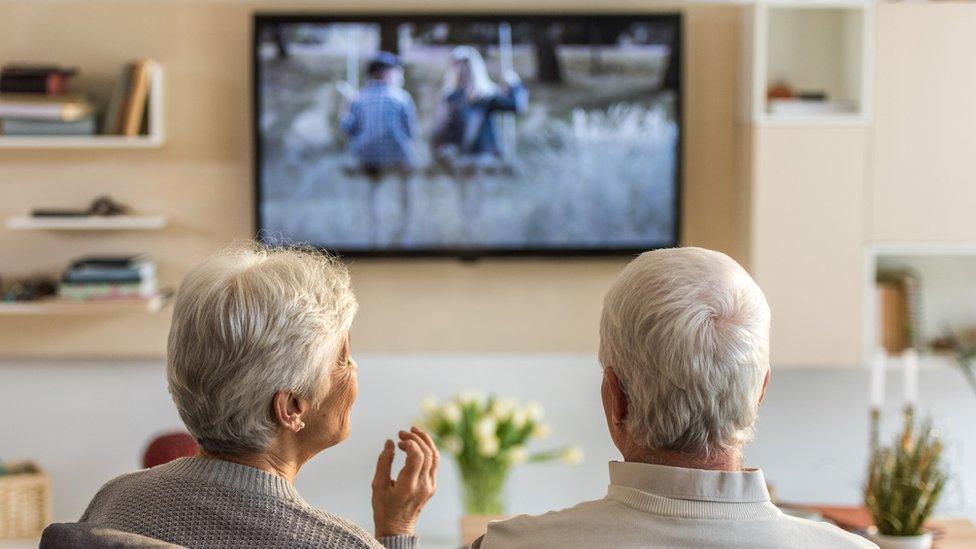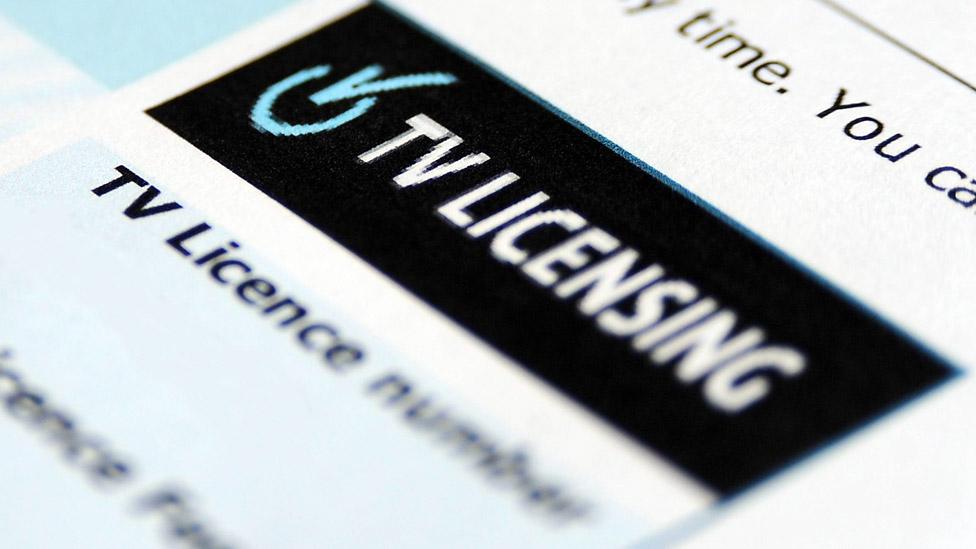BBC: TV licence fee decriminalisation being considered
- Published

The government is to consider whether failure to pay the TV licence fee should cease to be a criminal offence, a Treasury minister has said.
Rishi Sunak confirmed Prime Minister Boris Johnson has ordered a review of the sanction for non-payment of the £154.50 charge, which funds the BBC.
Prosecution for non-payment of the fee can currently end in a court appearance and potential fine of up to £1,000.
But the BBC warned decriminalisation could cost it £200m a year.
The Sunday Telegraph reported, external the consultation had been ordered by the PM after the Conservatives won a majority of 80 at last week's election.
Asked whether non-payment of the fee should be decriminalised, Mr Sunak told the BBC's Andrew Marr Show: "That is something the prime minister has said we will look at, and has instructed people to look at that".
"I think it's fair to say people find the criminalisation of non-payment of the licence fee to be something that has provoked questions in the past," he said.
Mr Sunak did not elaborate on an alternative method that could be used to enforce payment of the TV licence.
However a previous government review, external in 2015 looked into whether a fine for non-payment could be issued under civil law instead, similar to the fees for breaking parking, bus lane and congestion charge rules.
The review also examined whether unpaid TV licence fees should be considered a civil debt in the same way as unpaid utility bills or council tax.
However, it recommended against changing the criminal sanctions regime, saying decriminalisation could bring with it an increased risk of evasion.
It added that penalties brought under civil law could still be enforced using the criminal law as a last resort.
Income from the licence fee was worth £3.6bn to the BBC in the last financial year, accounting for approximately 75% of the broadcaster's revenues.

During the election campaign, Prime Minister Boris Johnson said he thought replacing the licence fee entirely needs "looking at".
"You have to ask yourself whether that approach to funding a media company still makes sense in the long term given the way that other organisations manage to fund themselves," he said.
"The system of funding out of what is a general tax bears reflection".
'Value for money'
Mr Sunak said he would not "speculate" on the long-term future of the licence fee itself, adding that it had been "secured" through to 2027, when the current Royal Charter governing the corporation ends.
But he added: "How people consume media is changing, and it is of course right we continue to look at those things over time."
A BBC spokesman said the previous government review recommended the existing criminal sanctions regime should be maintained.
"The government has already commissioned a QC to take an in-depth look at this matter and he found that 'the current system of criminal deterrence and prosecution should be maintained' and that it is fair and value for money to licence fee payers," the spokesman said.
"The review also found that non-payment cases accounted for 'a minute fraction' - only 0.3% - of court time."
- Published26 August 2019

- Published17 July 2019

- Published9 December 2019
